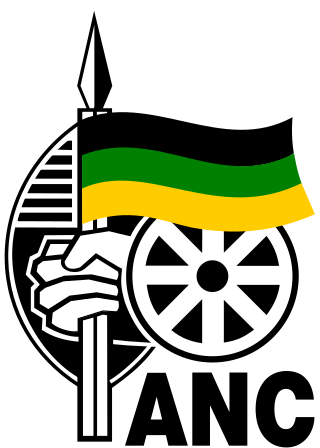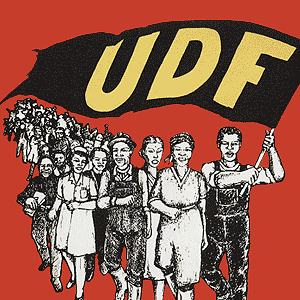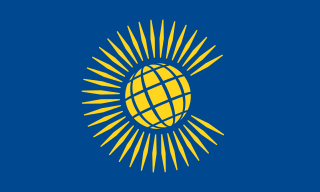
The African National Congress (ANC) is a political party in South Africa. It originated as a liberation movement known for its opposition to apartheid and has governed the country since 1994, when the first post-apartheid election resulted in Nelson Mandela being elected as President of South Africa. Cyril Ramaphosa, the incumbent national President, has served as President of the ANC since 18 December 2017.

The Council of Europe is an international organisation with the goal of upholding human rights, democracy and the rule of law in Europe. Founded in 1949, it brings together 46 member states with a population of approximately 675 million as of 2023; it operates with an annual budget of approximately 500 million euros.

The Organisation of Islamic Cooperation, formerly the Organisation of the Islamic Conference, is an intergovernmental organization founded in 1969, consisting of 57 member states, with 48 being Muslim-majority countries. The organisation states that it is "the collective voice of the Muslim world" and works to "safeguard and protect the interests of the Muslim world in the spirit of promoting international peace and harmony".

The Organisation of African Unity was an intergovernmental organization established on 25 May 1963 in Addis Ababa, Ethiopia, with 33 signatory governments. One of the main heads for OAU's establishment was Kwame Nkrumah of Ghana. It was disbanded on 9 July 2002 by its last chairman, South African President Thabo Mbeki, and replaced by the African Union (AU). Some of the key aims of the OAU were to encourage political and economic integration among member states, and to eradicate colonialism and neo-colonialism from the African continent.

The Organisation internationale de la Francophonie is an international organization representing countries and regions where French is a lingua franca or customary language, where a significant proportion of the population are francophones, or where there is a notable affiliation with French culture.

The South African Communist Party (SACP) is a communist party in South Africa. It was founded in 1921 as the Communist Party of South Africa (CPSA), tactically dissolved itself in 1950 in the face of being declared illegal by the governing National Party under the Suppression of Communism Act, 1950. The Communist Party was reconstituted underground and re-launched as the SACP in 1953, participating in the struggle to end the apartheid system. It is a member of the ruling Tripartite Alliance alongside the African National Congress and the Congress of South African Trade Unions (COSATU) and through this it influences the South African government. The party's Central Committee is the party's highest decision-making structure.
International human rights law (IHRL) is the body of international law designed to promote human rights on social, regional, and domestic levels. As a form of international law, international human rights law is primarily made up of treaties, agreements between sovereign states intended to have binding legal effect between the parties that have agreed to them; and customary international law. Other international human rights instruments, while not legally binding, contribute to the implementation, understanding and development of international human rights law and have been recognized as a source of political obligation.
Youth For Christ (YFC) is a worldwide Christian movement working with young people, whose main purpose is evangelism among teenagers. It began informally in New York City in 1940, when Jack Wyrtzen held evangelical Protestant rallies for teenagers. Rallies were held in other U.S. cities during World War II, attracting particularly large crowds in Chicago led by Torrey Johnson, who became YFC’s first president in 1944. Johnson hired Billy Graham as YFC’s first employee. Former YFC staff have launched over 100 related Christian organizations, including the Billy Graham Evangelistic Association and World Vision.
The right to work is the concept that people have a human right to work, or to engage in productive employment, and should not be prevented from doing so. The right to work, enshrined in the United Nations 1948 Universal Declaration of Human Rights, is recognized in international human-rights law through its inclusion in the 1966 International Covenant on Economic, Social and Cultural Rights, where the right to work emphasizes economic, social and cultural development.

The African Commission on Human and Peoples' Rights (ACHPR) is a quasi-judicial body tasked with promoting and protecting human rights and collective (peoples') rights throughout the African continent as well as interpreting the African Charter on Human and Peoples' Rights and considering individual complaints of violations of the Charter. This includes investigating human rights violations, creating and approving programs of action towards encouraging human rights, and set up effect communication between them and states to get first hand information on violations of human rights. Although the ACHPR is under a regional government facility, they don't have any actual power and enforcement over laws. This ends up in them drafting up proposals to send up the chain of command to the Assembly of Heads of State and Government and they will act accordingly.

The African Charter on Human and Peoples' Rights is an international human rights instrument that is intended to promote and protect human rights and basic freedoms in the African continent.
The African Charter on the Rights and Welfare of the Child was adopted by the Organisation of African Unity (OAU) in 1990 and was entered into force in 1999. Like the United Nations Convention on the Rights of the Child (CRC), the Children's Charter is a comprehensive instrument that sets out rights and defines universal principles and norms for the status of children. The ACRWC and the CRC are the only international and regional human rights treaties that cover the whole spectrum of civil, political, economic, social and cultural rights.

The Southern Cameroons was the southern part of the British League of Nations mandate territory of the British Cameroons in West Africa. Since 1961, it has been part of the Republic of Cameroon, where it makes up the Northwest Region and Southwest Region. Since 1994, pressure groups in the territory claim there was no legal document in accordance to UNGA RES 1608(XV) paragraph 5, and are seeking to restore statehood and independence from the Republic. They renamed the British Southern Cameroons as Ambazonia.

The United Democratic Front (UDF) was a South African popular front that existed from 1983 to 1991. The UDF comprised more than 400 public organizations including trade unions, students' unions, women's and parachurch organizations. The UDF's goal was to establish a "non-racial, united South Africa in which segregation is abolished and in which society is freed from institutional and systematic racism." Its slogan was "UDF Unites, Apartheid Divides." The Front was established in 1983 to oppose the introduction of the Tricameral Parliament by the white-dominated National Party government, and dissolved in 1991 during the early stages of the transition to democracy.

A Scout leader or Scouter generally refers to the trained adult leader of a Scout unit. The terms used vary from country to country, over time, and with the type of unit.

Internal resistance to apartheid in South Africa originated from several independent sectors of South African society and took forms ranging from social movements and passive resistance to guerrilla warfare. Mass action against the ruling National Party (NP) government, coupled with South Africa's growing international isolation and economic sanctions, were instrumental in leading to negotiations to end apartheid, which began formally in 1990 and ended with South Africa's first multiracial elections under a universal franchise in 1994.

The World Assembly of Youth is the international coordinating body of national youth councils and national youth organisations. The full members of WAY are national youth councils. WAY currently has 140 member organisations from all continents. As the international coordinating body of national youth councils, WAY has special consultative status with the United Nations, the highest status possible for a non-governmental organization. WAY co-operates with the UN and many of its special agencies, particularly with UNAIDS, UNEP, ILO, UNESCO, UNFPA, UNICEF, UNDP, UNCTAD and WHO.

The Commonwealth of Nations, often simply referred to as the Commonwealth, is an international association of 56 member states, the vast majority of which are former territories of the British Empire from which it developed. The chief institutions of the organisation are the Commonwealth Secretariat, which focuses on intergovernmental aspects, and the Commonwealth Foundation, which focuses on non-governmental relations among member states. Numerous organisations are associated with and operate within the Commonwealth.
The Monrovia Group, sometimes known as the Monrovia bloc, officially the Conference of Independent African States, was a short-lived, informal association of African states with a shared vision of the future of Africa and of Pan-Africanism in the early 1960s. Its members believed that Africa's independent states should co-operate and exist in harmony, but without political federation and deep integration as supported by its main rival, the so-called Casablanca Group. In 1963, the two groups united to establish a formal, continent-wide organisation, the Organisation for African Unity.












